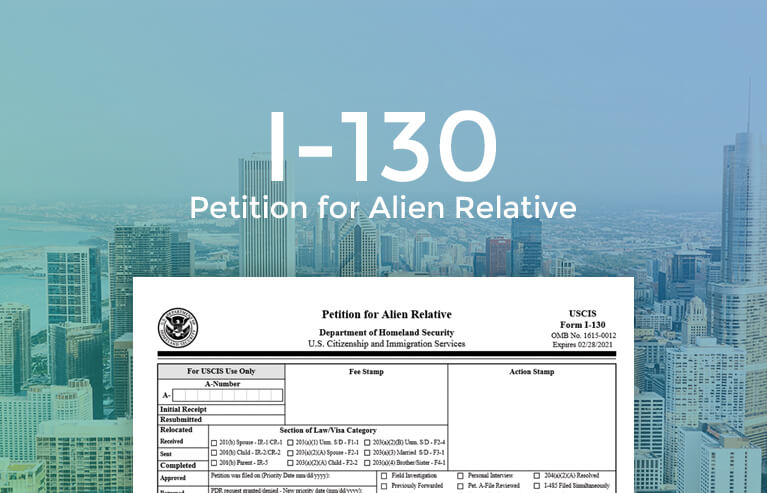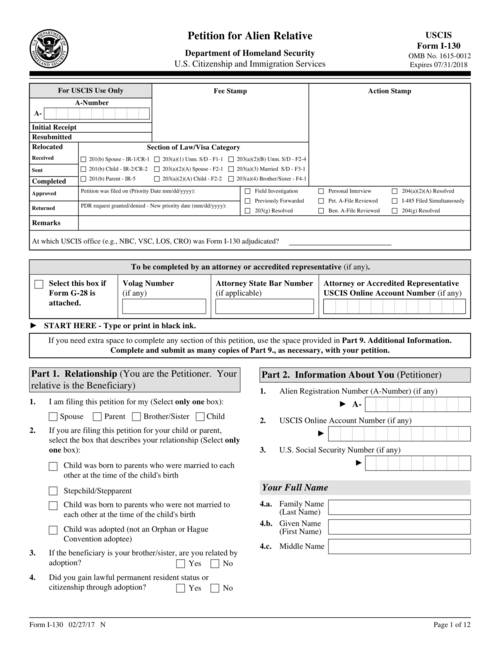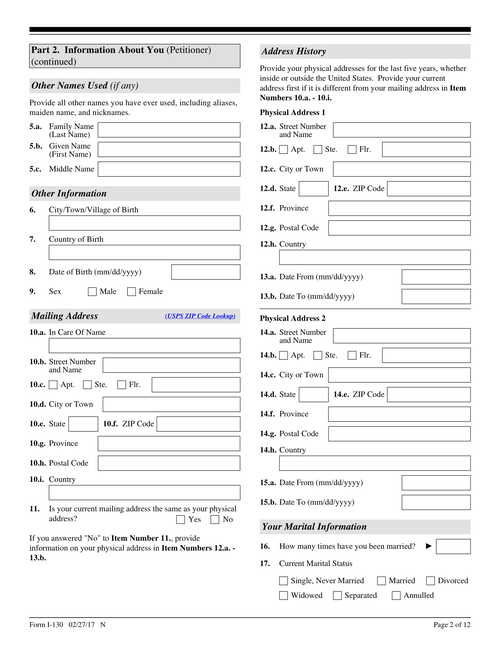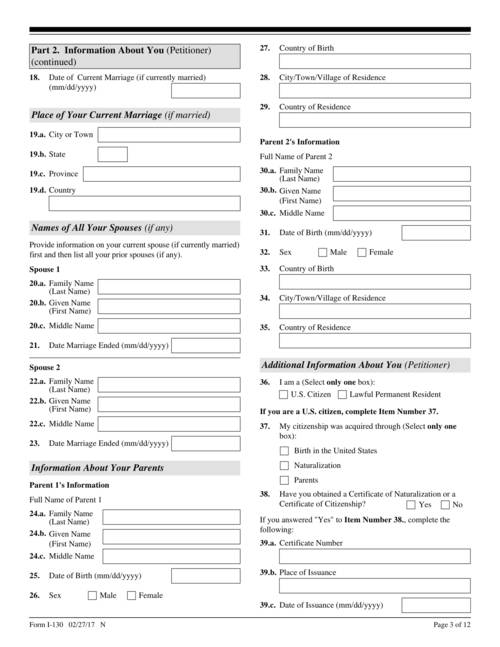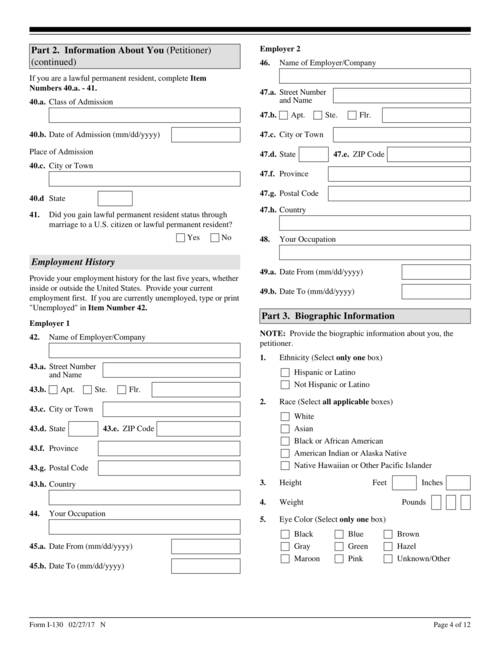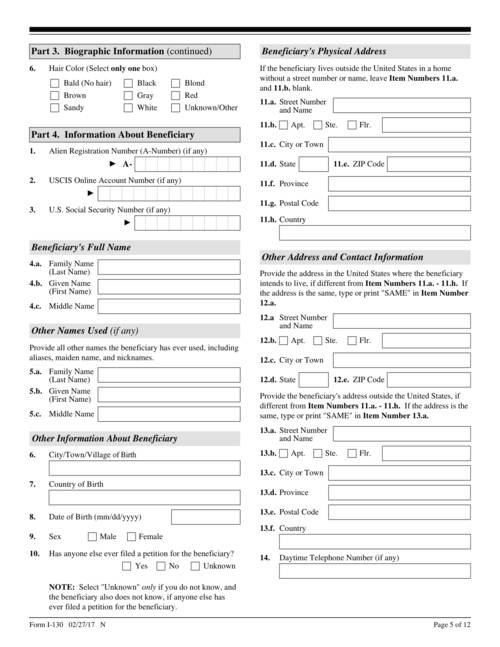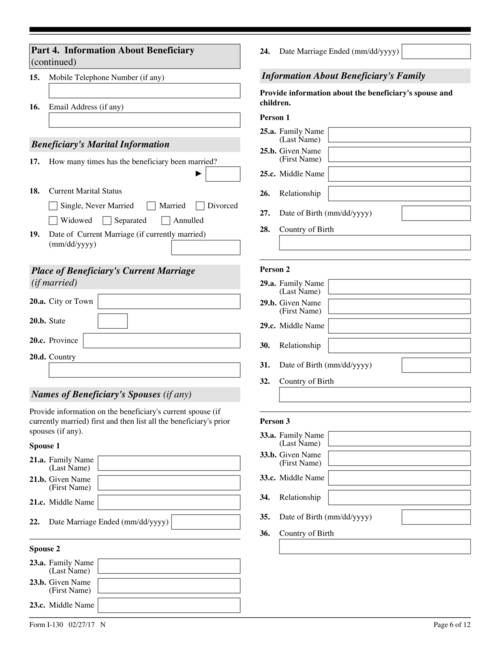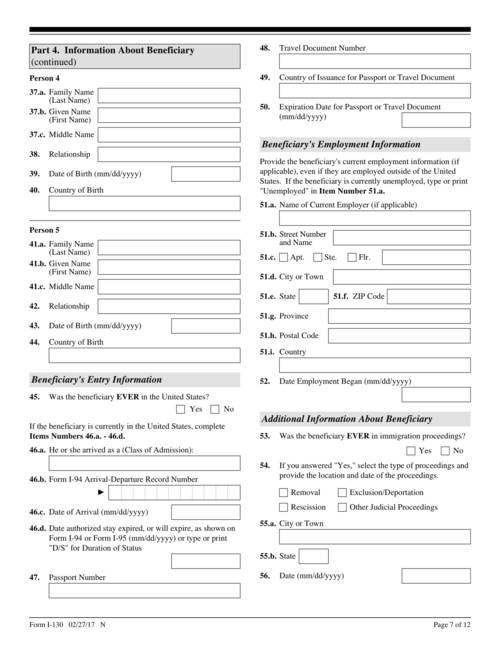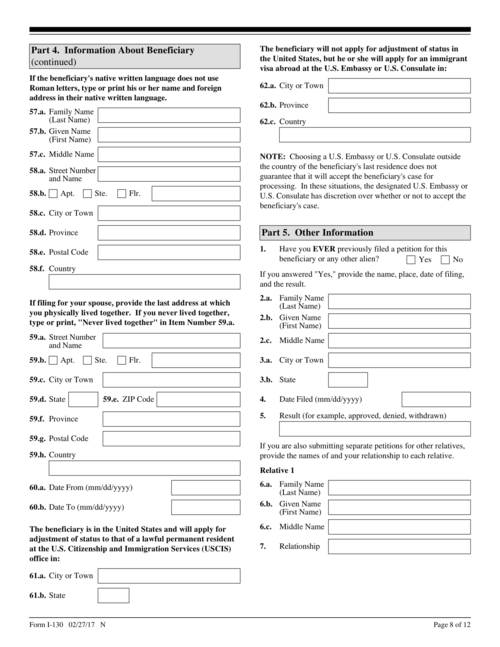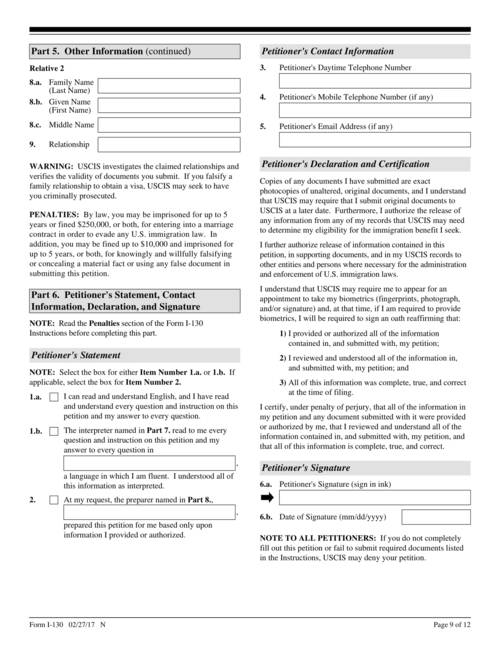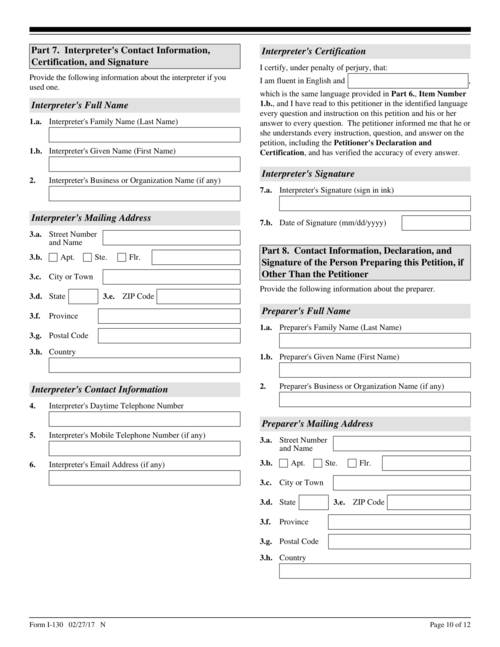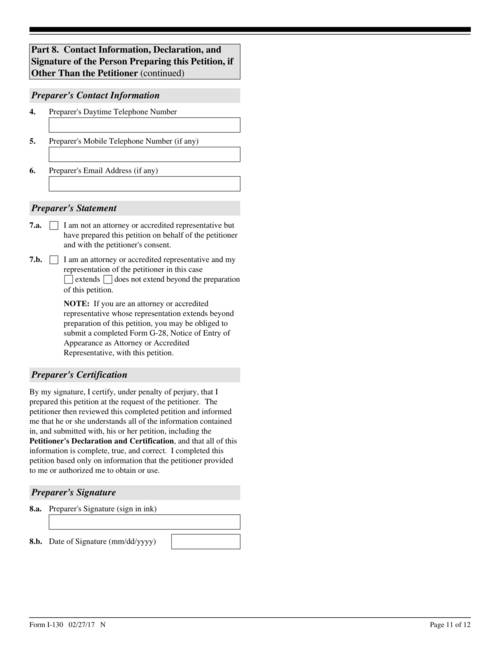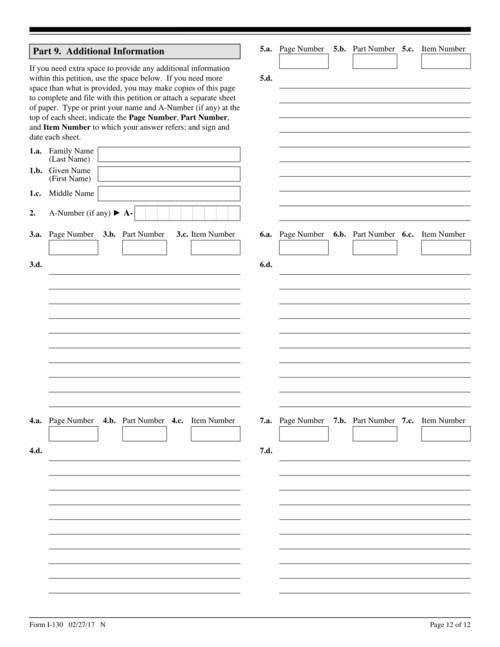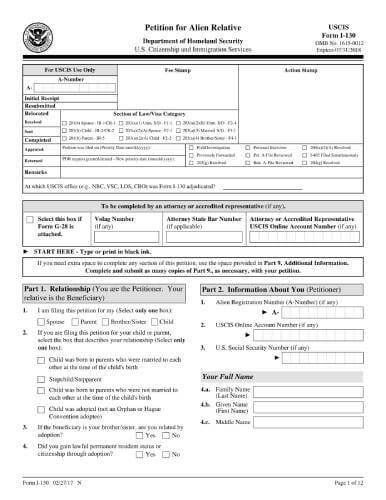
You can use Form I-130, Petition for Alien Relative, when you want your relative (usually, a spouse or child) to move to the United States. You can file this form as a permanent resident (the green card holder) or as a U.S. citizen. (Needless to say that if you are citizen of the U.S., the chances will be higher to get your petition granted.)
Form I-130 instructions
USCIS gives many recommendations with regard to how you should fill out your Form I-130 and what documents you may need to provide. Have a look at a few main recommendations:
Follow these general tips on how to fill out the application forms for USCIS:
- Use black ink, write block letters, provide full required information (fill out all the petition sections), sign the Form I-130, and never correct the form.
If you correct the mistakes in the petition, USCIS may reject the application; therefore, it is best to fill out another petition sample if you made an honest mistake.
- Verify if you are eligible for filing Form I-130, Petition for Alien Relative. You can consult the detailed instructions for Form I-130.
- Gather the documentation to support your Petition for Alien Relative. You may not need to mail those documents to USCIS, but it is best to have the documents at hand if USCIS decides that they need more information from you.
You may need to prepare the evidence such as a marriage or birth certificate depending on the reason for your petition. If you need more information what certificate you may need to prepare, you should consult your lawyer.
- File Form I-130 for each relative separately.
Naturally, you need to pay for each petition you file also separately (and you cannot pay, $1070 for two separate petitions). You can mail multiple petitions in one packages, but make sure that the each petition is in its own envelope or file and is completely separated from the other petitions and has the corresponding documents with it. Make sure that USCIS do not mix the documents or confuse petitions.
Do not confuse Form I-130, Application for Naturalization, with Form I-90, Application to Replace Permanent Resident Card.
If you lived in the U.S. as a permanent resident for 5 years, you can apply for naturalization (Form I-130), but you can also wait until your green card expires and file Form I-90 to prolong your permanent resident status.
Form I-130 fee
The fee for filing Form I-130 is $535. Nevertheless, you should verify the fee before actually paying it because USCIS may change it any time. Remember that you must pay the exact amount (you cannot pay more or less than $535).
USCIS also says that Form I-130 applicants can pay with a money order, personal check, or cashier’s check. Note that if you decide to pay by check, you must make sure that the check is payable to the U.S. Department of Homeland Security. If you fail to make the check payable to DHS, USCIS will not return the money and your Petition for Alien Relative can even be rejected.
Form I-130 processing time
As with any processing any application form, USCIS cannot specify the exact time for processing Form I-130 applications. Usually, it takes up to half a year for USCIS to process your Petition for Alien Relative. During the processing time, USCIS may also appoint a meeting to get your biometrics data. Then, if your petition is approved, your relative (a spouse, parent, or child) also needs to get a visa, which can take up to 6 months. Overall, it may take up to a year to approve your Form I-130 and for your relative to get a visa. Keep in mind that even if USCIS approves the petition, it does not mean that your relative automatically gets a green card.
Where to send Form I-130
You can apply for a relative of a foreigner by mail to a specific USCIS mailbox, depending on the state in which you live. To find out the correct USCIS mailing addresses, see the “Where to Store” section on the I-130 form page.
If you live outside the United States, where USCIS has an international office, you can apply at the USCIS Chicago Lockbox. If you are a US citizen aged 21 or older and are applying for a spouse or unmarried child under the age of 21 or a parent, you can also apply to the USCIS international office in the country where you live.
If you are a US citizen and reside outside the US, where USCIS does not have an international representative office, you can apply for a next-of-kin at a US embassy or consulate with jurisdiction over the territory in which you live.
Form I-130 PDF
A free copy of the Form I-130 petition is available on our website. Download it, fill it out, and file with USCIS.
Download the I-130 petition for relatives of foreigners
Last Updated 11/17/23 10:33:09AM

